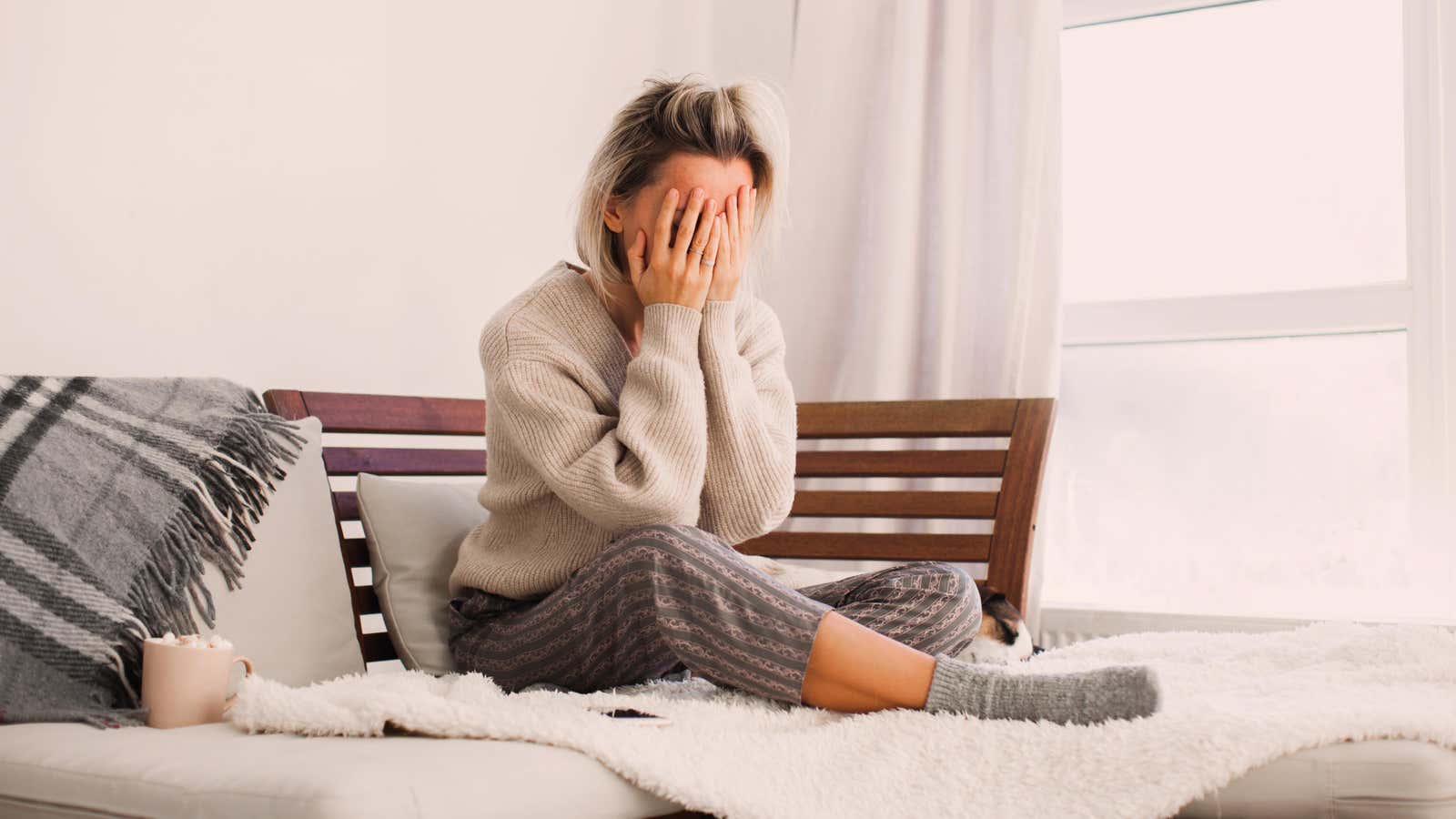These Habits Make You More Irritable

This is normal and sometimes annoying – when we’re too tired, when our environment is too loud, when we’re stuck in traffic, or when someone steals us at work. In some cases, such as in a traffic jam, there is nothing we can do to change the circumstances—all we can do is consciously modulate our responses. But there are a number of things we do every day that affect our mood and that we can control, and some of them are habits that are so ingrained that we may not even be aware of them.
Here are some of the ways you can unwittingly become more irritable every day, and what to do about it.
Don’t go outside all day
As a nature lover, it pains me to admit it, but there are days when I barely go outside, except for a few short steps to the bus stop or to pick up my child from kindergarten. But staying indoors all day takes a toll on your mood. ” Lack of natural light throws off our natural circadian clock ,” Kenneth Wright, director of the University of Colorado Boulder’s Sleep and Chronobiology Laboratory, told Time . To account for this, we need to go outside every day, weather permitting, ideally for 45 minutes in the morning.
skipping lunch
We know you’ve heard this before, but seriously: did you have breakfast today? How about lunch? Did you eat when you first felt hungry, or did you put it off until those hunger signals became painful? According to the National Council on Mental Wellbeing : “It is well known that unhealthy diets can cause mood swings. Fluctuations in blood sugar and nutritional imbalances are often to blame.”
According to WebMD , “when your blood sugar drops, your body tries to raise it. It produces epinephrine (adrenaline), the fight-or-flight hormone that… makes your heart beat faster and your palms sweat. And it can make you feel cranky and anxious.” If it stays there, your body will release the “stress hormone” cortisol. “Put adrenaline and cortisol together and you have a recipe for anxiety.”
If you find yourself putting off eating frequently during your work day, start setting a timer, enlisting the support of a partner, or putting regular snack and meal reminders on your calendar before the irritability kicks in.
Overreacting to our phones
According to a 2015 Deloitte study, Americans of all age groups checked their phones an average of 46 times a day. (If you listen to Reviews.org , that figure is much higher: 344 times a day, with 70% of Americans checking their phones within five minutes of receiving a notification.) But all of these distractions take our attention, focus, and focus, which leads to feelings of depression.
As psychiatrist Dr. Timothy Jader told the Huffington Post , “After we go down the rabbit hole, we beat ourselves up for being distracted and wasting time, which frustrates us, undermines our concentration and productivity, so we look for a way to distract ourselves from frustration. , and the cycle of mini-disappointments repeats itself, building on the latter.” If putting your phone on do not disturb isn’t enough to curb the urge to check every ring and vibrate, move your phone to another room.
Reading or watching emotionally draining things before bed
Whether it’s grimly scrolling through social media and mental shrapnel of the day’s depressing news or watching the latest installment of your favorite crime series, both can take a toll on your mood. While this won’t have the same effect for everyone, for some, the feeling of unease we get from watching emotionally exhausting TV or reading disturbing news persists during the hours we should be sleeping.
Try limiting your news and social media consumption to two or three specific times a day, or adopt a “no news after 6:00 pm” rule (or any other time that allows your brain to calm down for a few hours before bed).
Drinking too close to sleep
No, alcohol does not improve sleep. While it may initially induce a feeling of relaxation and help you fall asleep , it reduces REM sleep, which is the most restorative. “The immediate and short-term effect of alcohol is to reduce the time it takes to fall asleep, and this effect on the first half of sleep may be part of the reason that some people with insomnia use alcohol as a sleep aid,” says Irshaad Ebrahim. , medical director of the London Sleep Centre. “However, this is offset by more disturbed sleep in the latter part of the night.”
Because it is a central nervous system depressant, it may worsen symptoms of depression. If you like an evening cocktail, drink it right after work, not before bed.